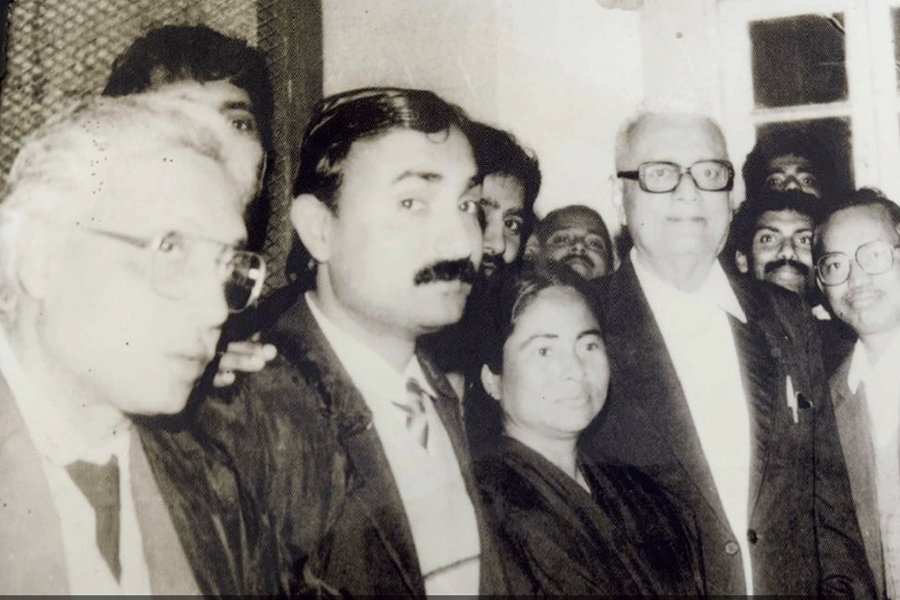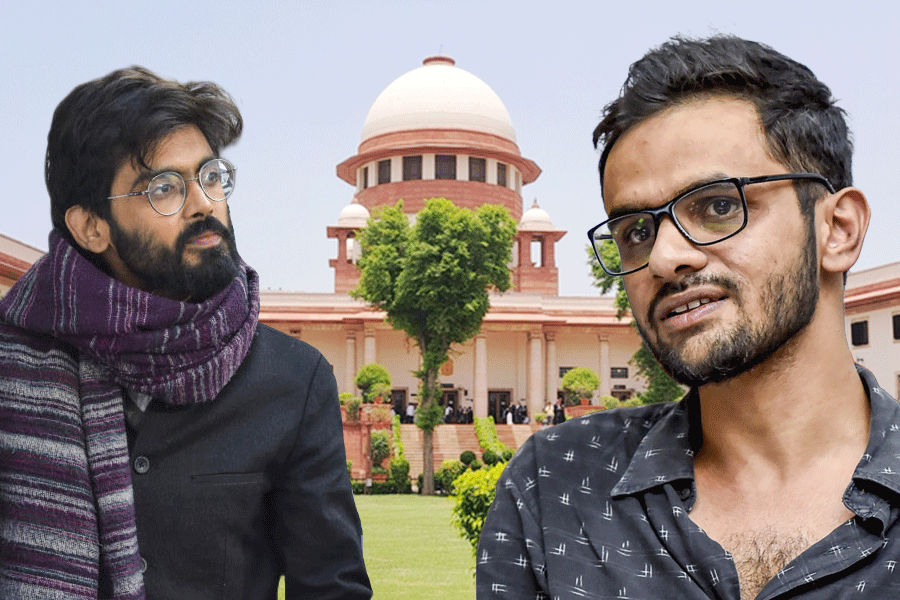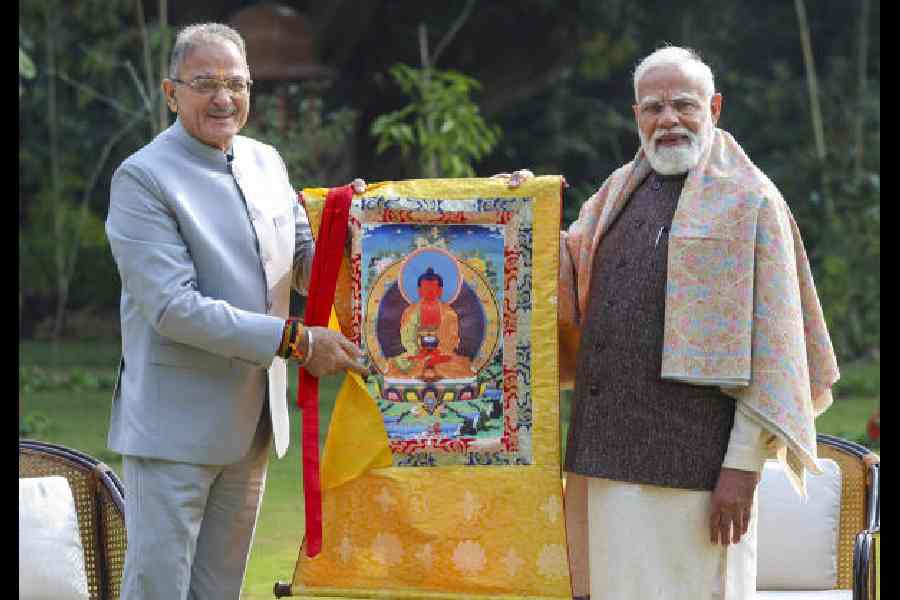 |
I had met Robert Wise rather accidentally in a Los Angeles film party where he sat in one corner of the bar unnoticed while flashbulbs were sparkling all around Spike Lee. I had walked up to him rather timidly and said that I had seen Sound Of Music 16 times and West Side Story about 12 times. I almost pissed in my pants when he turned to gaze into me for a while with his glazed eyes to retort: “I really don’t know much about Calcutta, son, but they can’t make movies like that any more. Care for a Jack?”
I had dreamt of those glazed eyes many times when I had felt tired and hopeless, battling with visionless producers and the distorted notions of commercial success in my rather constricted, mediocre world called Tollywood.... When my Bow Barracks Forever was easily dismissed or more recently Dutta Vs Dutta was a huge disaster at the box office, I fell back on my bottle of Jack and memories of those glazed eyes…. While watching Aparna Sen’s Goynar Baksho in a packed City Centre auditorium, I suddenly remembered those beautiful eyes once again and rather unconsciously said to myself, ‘Hey, we do make movies like this nowadays...’
Hugely witty, passionate, provocative, lyrical, unabashedly indulgent and languid, Goynar Baksho flirts with and arouses but does not submit to you. Rather, it tests your patience to leave you with a lump in your throat and the pride of being a part of history you have forgotten. The pride of being born in this land. A very personal tale of three women and a jewellery box spread over three decades becomes a saga of lust, love and liberation. The cursed box of jewels that symbolises the sexual and social repression of Pishima’s (Moushumi Chatterjee) world in the ’40s, is instrumental in turning a timid Somlata (Konkona Sensharma) into a self-sufficient working woman in the ’50s, and later comes handy in the liberation war of Bangladesh in the ’70s through a cheeky Chaitali (Shrabanti).
Aparna Sen had dabbled in, the much abused term, “magic realism” in many of her earlier works like Yugant or 15 Park Avenue. But this time she gets away like La Paloma with Gin on a hot Sunday afternoon. The sheer power of narrative storytelling infused with crazy fantasy makes Goynar Baksho one of the sexiest structures in recent times. The clever casting of Shrabanti as the young Pishima as well as her granddaughter Chaitali, coupled with the same actor playing Pishima’s lover Ramkhilaon the servant and Chaitali’s revolutionary lover Benu, pumps up the magic.
That the dilapidated house taken over by the Bangladeshi revolutionaries once belonged to Somlata’s secret lover/poet Rafique, where Chaitali finds Rafique’s love poems written to her mother, is quirky yet hugely soul-stirring. The constant interplay of timelessness and changing times makes this film adaptation of Shirshendu’s (Mukhopadhyay) novel a rare and enriching cinema experience in recent times.
I had been secretly very proud for having created one of my best sequences between a grandpa and his grandson (Dipankar De and Ronodeep Bose) in Dutta Vs Dutta where the two generations share their deepest secrets on the terrace, and the grandpa magically vanishes. After watching the smoking sequence on the terrace between the granny’s ghost and her granddaughter, where they too share their secrets, I lost that pride, cried and doffed my hat to Aparna Sen. My sole aim now is to outdo her two scenes — where Somlata rushes out in the wee hours of dawn to meet her secret admirer Rafique to find him gone, leaving behind a red rose and a thorn that pricks her feet, or where a guilty yet aroused Somlata almost forces her husband Chandan to make love and they talk about ghosts.... That’s what a good movie does. It ends up making another filmmaker jealous as well as inspired.
I don’t know why Aparna Sen films are always labelled as being primarily feminist. Goynar Baksho will inevitably fall into that same category in the audience’s mind as well as the media’s. I believe she has created some incredibly powerful and complex male characters. Dipu (Anjan Dutt, Yugant), Rahul (Mukul Sharma, Parama), Jahangir (Rahul Bose, Mr. & Mrs. Iyer).... Goynar Baksho has its share of equally delicious males. Saswata (Chatterjee) as the callous, cheating yet genuinely good-hearted husband is a treat. Koushik Sen as the very brief but stunningly handsome Rafique is superb. You even fall in love with the two treacherous, lecherous, hilarious grandfathers superbly played by Manu Mukherjee and Paran Bandopadhyay.
The icing on the cake, of course, is Moushumi as the complex ghost. Bitchy, outrageous, funny, yet soulful and tragic. But the cake, once again, is Konkona as Somlata. She simply sweeps the carpet off with a lightness of touch that is so hard to define. Here, unlike in Mr. & Mrs. Iyer, Dosar, Luck By Chance and Omkara, she has a whole range to play. The clumsy, the comical, the timid, the innocent, the confidante, the dignified, the sensuous and finally the sad and wise. Konkona lives through it all with such ease. Aparna Sen had once asked me in an interview as to who was my best Indian actor in recent times… I invariably thought of my own self, so ended up hemming and hawing a bit about Naseer (Naseeruddin Shah) and Irrfan (Khan)…. But now I feel like saying it’s Konkona Sensharma.
See, you as an audience and I as a filmmaker know that movies need to succeed at the box office to make the effort worthwhile. But then again, we both know that all that is decent or tasteful cannot be valued simply by cash collected. There was a time when our film industry gave some elbow room and respect to movies that perhaps lost the rat race but were adventurous, different. My parents found Pather Panchali utterly boring, saw Aparichito or Nishipadma more than a couple of times, but never badmouthed Mr Ray. When I ventured into this crazy business, the divide between the cheap Charlie and the branded was even more apart. Either you rocked the box office or bagged an award, be it even from Alaska. The rest, like Jadubangsha, got washed away. Then came a time when the branded ran short of state support. We, so-called art-house actors, lost entry into the house because Tollywood or even Bollywood glamour stars stomped in, in search of awards. Better cinema got funding and you guys were lured into the theatres.
Whether that worked on the calculator or not I don’t know. But this I know that about 10 years back people like me and you met on somewhat equal terms. We gave you something that you found entertaining yet not mindless. We did not have to show you awards or glamour dolls to lure you to the multiplexes….
But that’s 10 years now. Today it seems that what is “in” has to be judged by only the calculator again. You will call a brand worthwhile if only it sells like hot cake. Your good cinema is being judged by only your footfalls and not by what is adventurous or different. It has to be as racy and easily consumable as the bowl of popcorn you carry to your seat. We don’t talk of sensibilities or good taste anymore. We just judge any and everything by its collections in the first two weeks. Ruthless it is, but that’s the top and bottom line, folks.
I did not set out to write a review of Aparna Sen’s latest film. As a professional trying to survive in this ruthless industry, I just wanted to celebrate cinema that has stirred me and made me cry. I wanted to share my experiences with you. In the last few years, quite a few, rather “nice” films were made but got flushed down the toilet simply because they did not get your footfall.
So if Goynar Baksho does not make you laugh your guts out like Bhooter Bhobishyot or perform like 22shey Srabon (Srijit Mukherji, not Mrinal Sen) at the booking counter, you too may happily choose to forget all those wonderful films which Aparna Sen once gave you, and the fact that she wanted to give you yet another surprise. For me, the scene where the young, wounded Bangladeshi revolutionary is carried through kaash flowers in the magical twilight with the soulful Sonar Bangla ami tomay bhalobashi on the soundtrack, has given me enough energy and courage to try and make another film from my heart and not just focus on the box office.
I still thank Fellini, Bergman, Mrinal Sen and Robert Wise often before I doze off. Amarcord, Fanny & Alexander, Bhuvan Shome and Sound Of Music are part of my Goynar Baksho that have been instrumental in pushing me towards this profession. So, Aparna Sen, I now thank you too, for being a part of my Baksho, for inspiring me again. For being there, so alive and so goddamn kicking.










